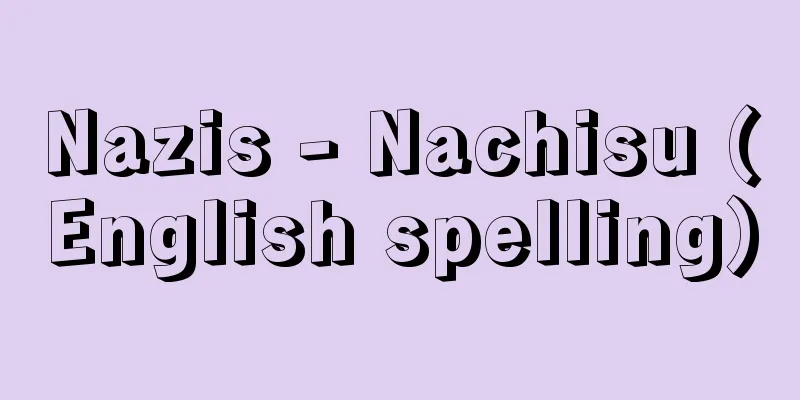Crisis - English

|
The word crisis comes from the Greek word krinein, meaning "separation," and was originally used as a medical term to suggest a sudden, decisive change in a patient's condition that marks the turning point between recovery and death. From this origin, a crisis can usually be seen as the occurrence of an unexpected emergency that negatively affects the stability of a certain state, or as a watershed that indicates a decisive or critical stage of a certain event. Therefore, such crises occur in all dimensions, from individuals to families, companies, local governments, national governments, and inter-national relations, and the contents of the crises are diverse, ranging from the physical and mental aspects of individuals to crises in the political, economic, and social systems of nations, large-scale natural disasters, serious accidents such as radioactive leaks, and major incidents such as mass-casual terrorist attacks. The international community has previously experienced crises such as the Cuban Missile Crisis (1962) and the Energy Crisis (1974), but has also experienced crises involving sudden mass casualties, such as the Great Hanshin-Awaji Earthquake in Japan (1995) and the September 11 terrorist attacks in the United States (2001). In particular, the rampant spread of mass-casualty terrorism has become a new crisis element in the 21st century. In order to respond to these various crises, efforts are being made to improve and strengthen crisis management capabilities at the level of companies, local governments, national governments, and even the international community. The aim is to manage a crisis efficiently as soon as it is recognized, minimize its impact, and return things to normal or close to normal. In the United States, the Federal Emergency Management Agency (FEMA) was established in 1979 under President Carter, and a system was established to take prompt measures against the occurrence of serious accidents and incidents. In comparison, Japan's response capabilities to unexpected emergencies were low, and it was not until 1982 that the government asked the Administrative Reform Promotion Council to consider the issue. In the end, the low response capabilities of the Japanese government were revealed in the Great Hanshin-Awaji Earthquake that occurred in January 1995, and prompt action was not taken, including relief and support activities for the victims. Also, interest in international crisis management was raised at the London Summit in June 1984, where it was discussed that crisis overcoming measures based on cooperation between developed countries would be taken if a regional conflict developed into an international crisis. This idea has become even stronger since the September 11 attacks, and the creation of an international anti-terrorism network has become a major topic of discussion at the Summit and the United Nations. On the other hand, however, placing too much emphasis on crisis management may result in blindly affirming the maintenance of the status quo. In other words, a crisis can be said to be a negative element in itself, but at the same time, it also suggests that there are problems with the current situation behind the crisis. Therefore, it is essential to thoroughly collect and analyze crisis-related information in terms of both quantity and quality. [Aoki Kazuyoshi] "Disaster and Environmental Crisis Management Theory: Theory and Practice of Corporate Disaster and Environmental Risk Management" by Oizumi Koichi (1995, Koyo Shobo)" ▽ "Security Theory: Global Crisis Management in the 21st Century" by Morimoto Satoshi (2000, PHP Institute)" ▽ "Japan, a 'Developing Country in Crisis Management': To What Extent Can It Respond to Unforeseen Events?" by Omori Yoshio (2000, PHP Institute) ▽ "Sociology of Crisis Management - Disasters, Conflicts, and Sea Lanes" edited by Tanaka Hakutomo and Fukuchi Takeo (2001, Hokuju Publishing) ▽ "Age of Crisis and Crisis Management - Reading 21st Century Society" edited by Yokohama University of Commerce Extension Lecture Committee (2001, Nansosha) ▽ "Crisis Management of Natural Disasters" edited by Sasa Atsuyuki (2001, Gyosei) ▽ "Research on Crisis Management" by Oizumi Koichi (2001, Bunshindo) ▽ "Fighting Crisis - How to Confront Terrorism, Disasters, and War" by Ogawa Kazuhisa (2001, Shinchosha) ▽ "Crisis Management in Japan" by Toshikawa Takao (2002, Kyodo News) ▽ "Crisis Management - Theory and Practice of Crisis Management" third edition by Oizumi Koichi (2002, Dobunkan Publishing) ▽ "Kimura Hiroshi (ed.), 'International Crisis Studies: Crisis Management and Preventive Diplomacy' (2002, Sekaishisosha) " ▽ "Taki Minoru, 'A Nation That Values Each and Every Individual: In Search of the Beginnings of Crisis Management' (2002, Japan Legislative Association)" ▽ "Igarashi Takayoshi and Legislative Studies Seminar, 'Cities Cannot War: Contemporary Crisis Management Theory' (2003, Kokujin no Tomosha)" ▽ "Humanitarian Crises and International Intervention: Prescriptions for Restoring Peace' (2003, Yushindo Kobunsha) edited by Hiroshima Peace Institute, Hiroshima City University" [References] | | | | |Source: Shogakukan Encyclopedia Nipponica About Encyclopedia Nipponica Information | Legend |
|
危機とは、ギリシア語の「分離」を意味することばkrineinに由来しており、元来、回復と死の分岐点になるような、病状の突然の決定的な変化を示唆する医学用語として用いられてきた。そうした語源から、危機とは通常、ある状態の安定に否定的に影響を与えるような不測の緊急事態の発生、もしくはある事象の決定的または重大な段階を示す分水嶺(ぶんすいれい)とみることができる。したがって、そうした危機は、人間個人に始まって家族、企業、地方の自治体、一国の政府、そして国家間関係といったすべての領域次元において生じ、さらにその危機の内容も、人間個人の肉体的、精神的な面から、国家の政治経済や社会の体制危機、大規模な自然災害、放射能漏れなどの重大事故、大量殺傷型テロなどの重大事件など多岐にわたっている。国際社会ではかつてキューバ危機(1962)やエネルギー危機(1974)などを経験したが、日本では阪神・淡路(あわじ)大震災(1995)、アメリカでは9・11同時多発テロ(2001)など、突然の大量死傷者の発生という危機を経験した。とくに大量殺傷型テロリズムの横行は21世紀の新たな危機要素になっている。 こうしたさまざまな危機に対応するために、企業、自治体や政府、さらには国際社会などの次元において、危機管理crisis management能力の向上・強化が模索されている。それは、危機が知覚された場合、ただちに危機を効率的に管理し、その影響を最小限にとどめ、平常もしくはそれに近い状態に戻すことを意図している。 アメリカではカーター大統領時代の1979年に連邦危機管理庁Federal Emergency Management Agency(FEMA(フィーマ))を創設し、重大事故や重大事件の発生に対する機敏な対策を講じるための制度を整えてきた。それに比較して日本では不測の緊急事態に対する対応能力は低く、1982年(昭和57)にようやく政府が行政改革推進審議会に検討を求める状態であった。結局、日本政府の対応能力の低さは1995年(平成7)1月に発生した阪神・淡路大震災でも露呈し、被災者への救援・支援活動などを含めて敏速な行動はとられなかった。また国際的な危機管理への関心は1984年6月のロンドン先進国首脳会議(サミット)で取り上げられ、地域紛争が国際的な危機に発展した場合に先進国間協力に基づく危機克服策を講じる旨討議された。こうした考えはアメリカ同時多発テロ以後いっそう強まっており、先進国サミットや国連の場において国際的な反テロ・ネットワークの構築が主要議題になっている。しかし一方で、危機管理に比重を置くあまり、やみくもに現状維持を肯定する結果にもなりかねない。つまり危機はそれ自体否定的な要素であるといえるが、同時に危機の背景には現状に問題点があることをも示唆しているからである。したがって、危機に関する情報を質・量ともに徹底的に収集・分析することが肝要になってくるのである。 [青木一能] 『大泉光一著『災害・環境 危機管理論――企業の災害・環境リスク管理の理論と実践』(1995・晃洋書房)』▽『森本敏著『安全保障論――21世紀世界の危機管理』(2000・PHP研究所)』▽『大森義夫著『「危機管理途上国」日本――万一の事態にどこまで対応できるのか?』(2000・PHP研究所)』▽『田中伯知編著、福地建夫著『危機管理の社会学――災害・紛争・シーレーン』(2001・北樹出版)』▽『横浜商科大学公開講座委員会編『危機の時代と危機管理――21世紀の社会を読む』(2001・南窓社)』▽『佐々淳行編著『自然災害の危機管理』(2001・ぎょうせい)』▽『大泉光一著『危機管理学研究』(2001・文真堂)』▽『小川和久著『危機と戦う――テロ・災害・戦争にどう立ち向かうか』(2001・新潮社)』▽『歳川隆雄著『日本の危機管理』(2002・共同通信社)』▽『大泉光一著『クライシス・マネジメント――危機管理の理論と実践』三訂版(2002・同文舘出版)』▽『木村汎編『国際危機学――危機管理と予防外交』(2002・世界思想社)』▽『滝実著『一人ひとりを大切にする国家――危機管理の原点を求めて』(2002・日本法制学会)』▽『五十嵐敬喜・立法学ゼミ著『都市は戦争できない――現代危機管理論』(2003・公人の友社)』▽『広島市立大学広島平和研究所編『人道危機と国際介入――平和回復の処方箋』(2003・有信堂高文社)』 [参照項目] | | | | |出典 小学館 日本大百科全書(ニッポニカ)日本大百科全書(ニッポニカ)について 情報 | 凡例 |
Recommend
Armorique
…Axes with a rim height of 1-2 mm are called low-...
Toshinori Kimura
...Also in 1901, Kodansha no Ehon appeared, which...
Iris laevigata (English spelling) Iris laevigata
…[Tetsuichi Yahara]. … From [Iris (Kakitsubata)] ...
Kibitsuhiko Shrine
Located in Ichinomiya, Kita-ku, Okayama City. The...
A song from the countryside - A little bit of a chick
A song book written by Sugae Masumi. It was comple...
Chemnitz
...A city in the state of Saxony in eastern Germa...
Peristalsis
… Digestive tract motility can be broadly divided...
Jin Ping Mei
A full-length novel from the Ming Dynasty in Chin...
New Harmony (English)
...Party utopias are both theoretical demands and...
Edo Haraate
…It was lined with light blue cotton and had an i...
Leonardo Pisano (English spelling)
…the first great mathematician born in Christian ...
Boiled and dyed
〘Other Ma Lower 1〙 Nishi-mu 〘Other Ma Lower 2〙① To...
Suzaku Highway
Modelled on the Chinese capital of Chang'an, H...
Flatware
…Forks in use today can be broadly divided into t...
Amiudo - Amiudo
〘Noun〙 (a variation of "amibito") ※Heike...









